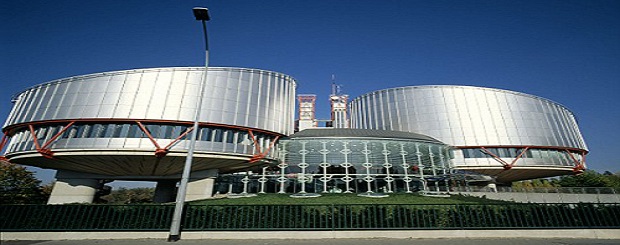

02 February 2016
Azerbaijan and Hungary must answer to questions of the European Court of Human Rights on Azerbaijani assassin Ramil Safarov’s extradition and early release. The lawyer of Markarian’s family Nazeli Vartanian mentioned in the interview with “Armenpress” that the applicant side strives to do everything in order the Armenian Republic to be considered as a side, because Kurken Markarian was a serviceman representing Armenian Republic when he was brutally killed by Azerbaijani perpetrator Ramil Safarov. “The fact, that the mentioned case is already under proceeding of the court, is a serious progress.
We have waited for it for 3 years as we filed the suit in 2013. February 28,” Vartanian said. Markarian’s relatives are represented by the Centre (based in Middlesex University) and Legal Guide (Armenian NGO) in ECHR.
The complaint side demands to recognize that the transfer of Ramil Safarov from Hungary to Azerbaijan and his pardon, justification and glorification by Azerbaijan is essentially a violation of Article 2(the right to life) and article 14 (prohibition of discrimination) of the European Convention on Human Rights.
The European Court of Human Rights may oblige Azerbaijan to extradite the perpetrator back to Hungary or face the rest of the punishment in Azerbaijan. Markarian’s relatives also point out that the officer became a victim of national hate crime, which later got an excuse by pardoning and releasing the killer.
Hungary, in its turn extradited Safarov to Azerbaijan without guarantees that the offender will serve his sentence completely. The case is also brought by Hayk Maguchian, an Armenian military officer whom Ramil Safarov was convicted of intending to murder during the same incident in Budapest.
Both men were attending a NATO sponsored Englishlanguage course in Budapest. On 19 February 2004 Safarov murdered Markarian by decapitating him with an axe. In April 2006 Safarov was found guilty of murder by the Budapest City Court, and was sentenced to life imprisonment, with the possibility of conditional release after 30 years.
The court found that Safarov had intended to kill two Armenian participants at the course on the anniversary of the beginning of the conflict between Armenia and Azerbaijan over the Nagorno-Karabakh region. After the Court of Appeal upheld this judgment in February 2007, Safarov began serving his sentence in a Hungarian prison.
In August 2012 the Hungarian Minister of Justice approved Safarov’s transfer to Azerbaijan with a view to his serving his sentence there (under the Council of Europe Convention on the Transfer of Sentenced Prisoners 1983). However, a few hours after Safarov was transferred on 31 August 2012, he was granted a pardon by the Azerbaijani President and set free. He was also promoted to major, awarded eight years’ salary arrears and offered a flat.
In a report published in December 2012, the Hungarian Ombudsman criticised the Hungarian Government for approving the transfer before any assurances about the treatment of Safarov had been received from the Azerbaijani authorities.
YERAKOUYN
http://www.yerakouyn.com
